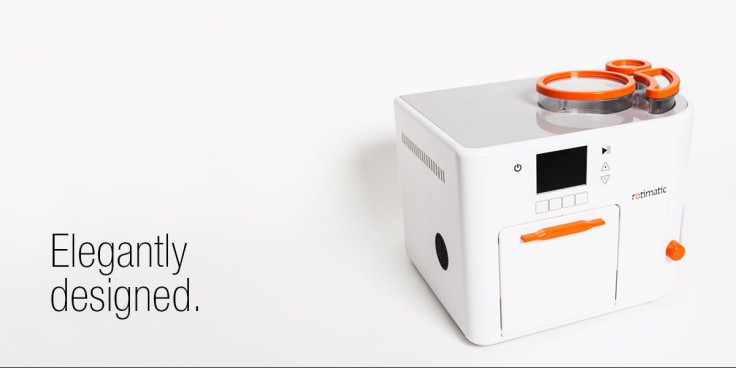Rotimatic, Indian Flat Bread Maker, Helps Foster Healthy Eating: Why Roti Is Good For Your Health [VIDEO]

The roti is a staple in many Indian kitchens, and for good reason. The round flat bread is high-fiber and heart-healthy, and has been a part of Indian cuisines for thousands of years and is commonly paired with vegetable or meat curries. However, the art of making perfectly round and delicious rotis is a technique that takes time and practice.
Demanding jobs, family and friend obligations, and just the hustle and bustle of every day life leave many people looking for fast and easy options when it comes to dinner. And time-intensive foods like roti just don't seem like an option. Roti is consumed by 800 million Indians so it was only a matter of time till a self-making roti machine became available.
The Rotimatic, as it is known, is an automatic roti-making machine the size of a toaster oven. There are separate compartments for flour and water, and the machine makes up to 20 rotis in one use. Choices for thickness, softness, and the amount of oil are available on the digital screen. Based in Singapore, the inventor and CTO, Pranoti Nagarkar, has had a mission since 2008 to bring her Rotimatic to market. “With a demanding job, I often found that I did not have the energy to make them [roti],” said Nagarkar.
Trained as a mechanical engineer, Nagarkar said that she had dreams of "becoming an inventor.” Inventing a machine to make her life easier was something so logical for Nagarkar, but she never thought it was possible. She then decided to venture out and designed the Rotimatic.
This machine will make producing and eating Indian flat bread easier. That's great for home cooks short and time, and, what's more, when prepared properly, rotis offer a tremendous amount of health benefits. The basis of roti is whole wheat flour, and according to the Mayo Clinic, research has shown that this type of flour has substantial nutritional value including fiber, potassium, and magnesium. Unlike white flour, whole wheat flour is heart-healthy and can help to prevent a number of cardiovascular diseases. A quarter of a cup of whole wheat flour has about 15 percent of the daily recommended amount of fiber — on average, one cup of flour makes six rotis.
Rotimatic is marketed and sold under the company Zimplisitc, which is also headed by Nagarkar and her husband, Rishi Israni, who serves as the company’s CEO. The company hopes to send out its first orders by December of this year. It is still working out the details and conducting product testing. Take a look at the demonstration of the Rotimatic below:
:
Published by Medicaldaily.com



























